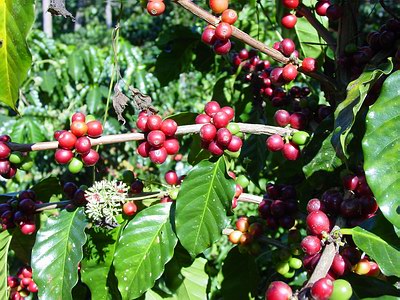Panama Canal taps coffee farmers to help heal area hit by deforestation, drought
An incentive program for coffee farmers in Panama who have planted scores of trees near the country's namesake canal also seeks to benefit the key global waterway, which has recently suffered from major drought that has crimped the flow of trade. The 15-year-old program aims to slow the accumulated environmental damage, including soil erosion and the contamination of local rivers, that have contributed to the canal's falling water levels.

- Country:
- Panama
An incentive program for coffee farmers in Panama who have planted scores of trees near the country's namesake canal also seeks to benefit the key global waterway, which has recently suffered from major drought that has crimped the flow of trade.
The 15-year-old program aims to slow the accumulated environmental damage, including soil erosion and the contamination of local rivers, that have contributed to the canal's falling water levels. At the same time, it allows farmers to expand their plantings and even access higher prices for the robusta beans they produce.
To date, the Panama Canal Authority (ACP) has spent $32 million on the program, which is used to train coffee farmers to adopt more environmentally friendly methods as well as help them access certifications that offer a premium for their beans. "It improves our economy. It helps the climate. We can protect the rivers and it helps the canal better cope with droughts," said Roberto Benitez, who leads a local coffee growers group.
"It's true that by reforesting the farms with coffee we don't solve everything," he added. "But it helps." Some 1,700 local farmers benefit from the initiative.
During the last coffee harvest, around 10,600 60-kilogram bags of robusta beans were harvested in the Capira area, home to many of the program's farmers, located on the canal's western basin. Experts credit the project with helping to slow the damage to the surface water sources crucial to the functioning of the canal, through which around 5% of global trades passes, at a time when the ACP has been forced to reduce crossings due to severe drought.
ACP head Ricaurte Vasquez praised the farmers, arguing that they make the interoceanic waterway more resilient to the global climate crisis. "While they work to optimize their activity, they're doing great work to protect the water for the population as well as guarantee the canal's operations," he said.
(This story has not been edited by Devdiscourse staff and is auto-generated from a syndicated feed.)
- READ MORE ON:
- Ricaurte Vasquez
- Capira
- Panama
- Roberto Benitez










